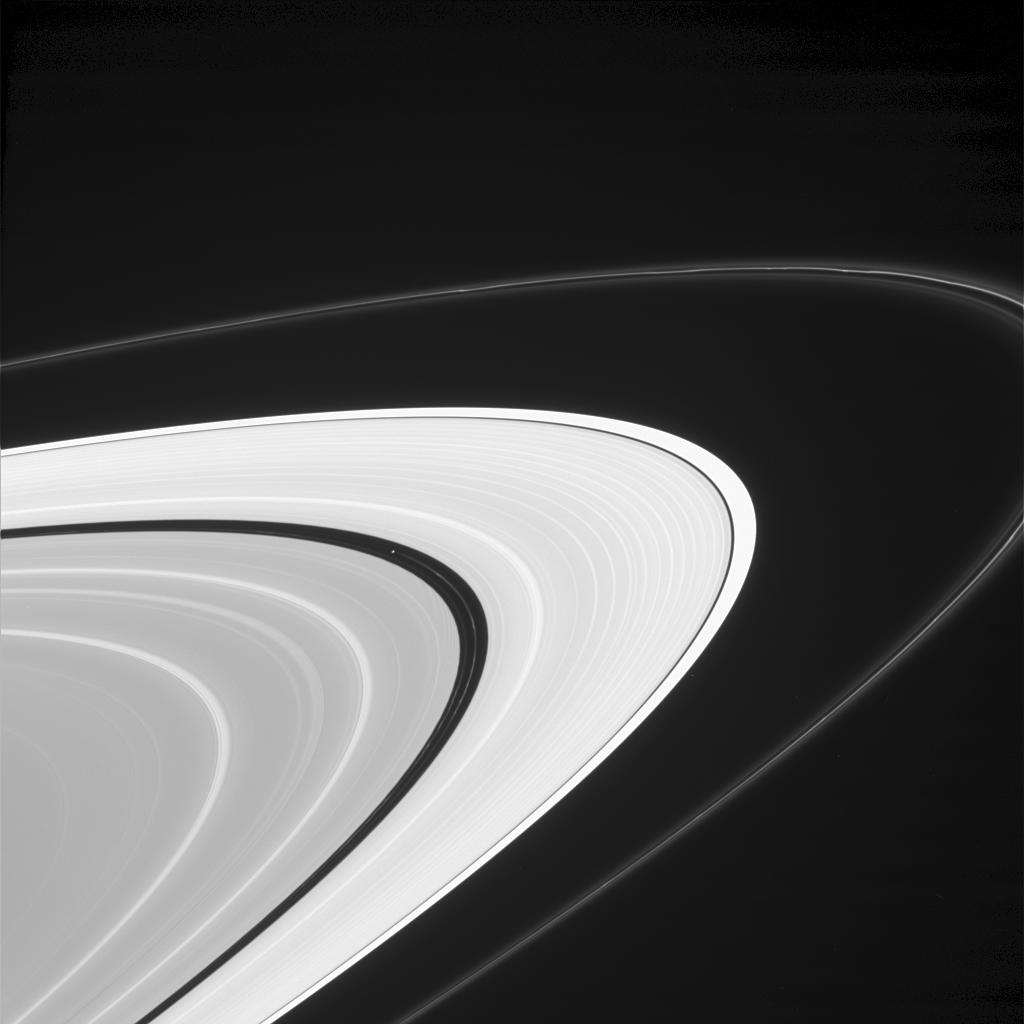Splendid Striations

| PIA Number | PIA07537 |
|---|---|
| Language |
|
This sweeping view of Saturn's rings offers a look at how the planet's moons help shape and maintain this structure, making Saturn the jewel of the solar system.
Some of the bright lanes seen here within the main rings are due to resonances with moons such as Mimas, Janus and Prometheus, whose gravity nudges the orbits of the ring particles. These resonances can also cause dark gaps in the rings, like the Cassini Division.
Clumps are visible in both the thin, outer F ring and the ringlets within the Encke Gap; the latter is maintained by the presence of tiny Pan (20 kilometers, or 12 miles, across at left of center). The clumps result from gravitational interactions of ring particles with the small moons that orbit nearby. The structurally complex F ring is maintained by the presence of the moons Prometheus and Pandora, not pictured (see Flock of Moons ).
Pan also creates dark wakes, which can faintly be seen here immediately interior to the inner edge of the Encke Gap.
The view is from beneath Saturn's ringplane, looking upward.
The image was taken in visible light with the Cassini spacecraft narrow-angle camera on May 24, 2005, at a distance of approximately 1.7 million kilometers (1.1 million miles) from Saturn. The image scale is 10 kilometers (6 miles) per pixel. Contrast was enhanced to improve the visibility of faint objects in the scene.
The Cassini-Huygens mission is a cooperative project of NASA, the European Space Agency and the Italian Space Agency. The Jet Propulsion Laboratory, a division of the California Institute of Technology in Pasadena, manages the mission for NASA's Science Mission Directorate, Washington, D.C. The Cassini orbiter and its two onboard cameras were designed, developed and assembled at JPL. The imaging team is based at the Space Science Institute, Boulder, Colo.
For more information about the Cassini-Huygens mission visit http://saturn.jpl.nasa.gov . The Cassini imaging team homepage is at http://ciclops.org .
Credit: NASA/JPL/Space Science Institute
